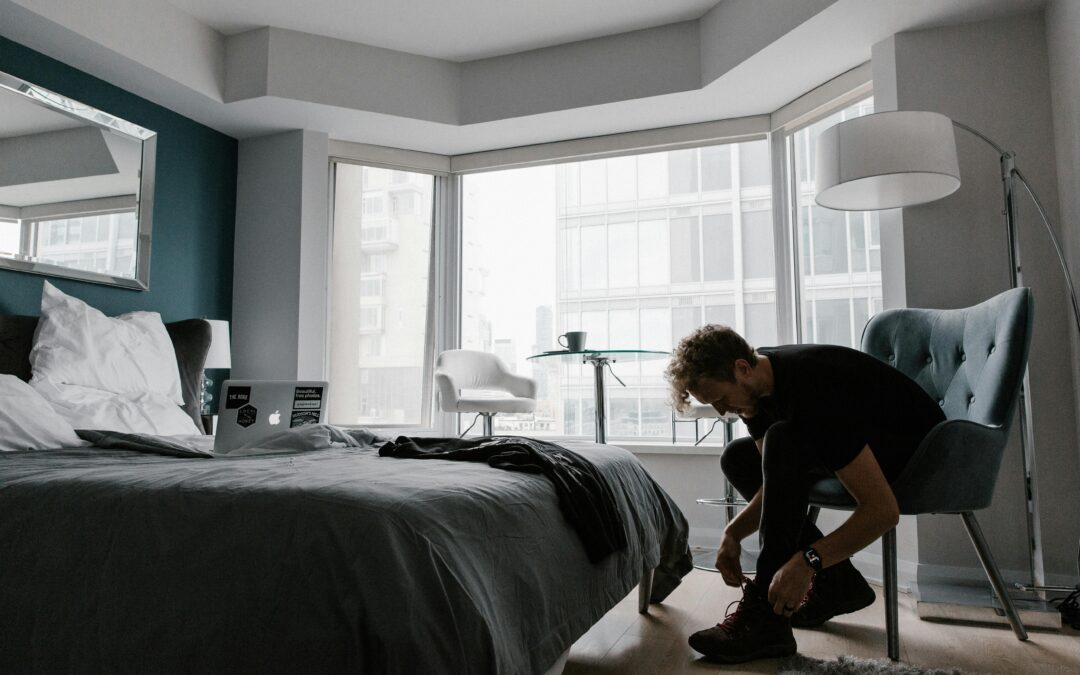Author: Matthew Palmieri
It took me close to a decade after my diagnosis to come across the literature that would completely change the way I looked at my struggles with bipolar. After spending years not necessarily in denial—but operating under the assumption that medication and time would slowly ease me out of the condition—I came to a different realization. I believe there’s never really a way out of bipolar. Only through.
Reading about how bipolar is manageable, specifically within the context of a holistic treatment plan, shifted everything for me. I made nice with my symptoms, looking at them in a much more clinical sense. I realized I wasn’t broken. I was just unaware—ignorant even.
Much of the content I’ve come across emphasizes the importance of a holistic approach to managing the illness, rather than focusing on just one form of treatment. That perspective helped me rethink how I approached my days. By looking at things holistically, I could begin to structure a routine that included a variety of treatment methods—ones that, when synced together, helped me live a more balanced life.
I’ve learned that any shake-ups in my routine can tip the scale toward a difficult manic episode, which can naturally push me into a darker depressive one. That’s why what’s been so crucial for me is understanding how a holistic treatment plan supports stability through the familiar habits and rituals that bring predictability and a sense of control. Of course, there’s no one-size-fits-all approach—but here are a few of the reasons why routine, supported by holistic treatment, has worked for me.
Routine For Emotional Regulation
Routine can provide a sense of control when anxiety creeps in and things feel like they are becoming unmanageable. Although anxiety never really goes away, I can channel that energy into action.
If I have a conflict at work, I know in just a few hours I’ll be walking my dog, which can really boost my mood. My brain may then be able to process this conflict with a different kind of insight. I may not be able to control the conflict itself, but I can control my routine of walking and often enjoying music while I do so as well. This is a daily routine for me and a natural form of therapy.
Simple, yet effective.
Tracking Triggers and Moods
If something is bothering me for an extensive period throughout the course of my day, it’s likely something I’ll have to address at a higher level, likely with my therapist. I know it’s something serious when my mind won’t let it go. It could then easily turn into something that shifts me into a manic or depressive phase if left unaddressed because it can turn irrational, which can cause problems at work and with close relationships. Weekly therapy sessions provide stability and an outlet for me.
My approach to therapy is more of a free-flow conversation and a check-in. If something has stayed with me, I try to trace it back to an underlying issue and if so, ask, “How does my bipolar impact this struggle?” I would say CBT has helped me, but I’ve built up the kind of relationship with my therapist where I can simply let things out and she can provide insight about where things may be stemming from.
A more structured approach may work better for others.
Routine For Sleep
If all else fails and my mood becomes uncontrollable, I know that 95% of the time, my problems will feel less severe when I wake up the next day. Sleep provides me perspective. I strive for 7-8 hours of sleep per night. Often, after a difficult day, I wake up with an appreciation that my problems are manageable. If I stay up all night thinking about them, I’m going to maintain that negative attitude throughout the next day.
Routine For Medication
One of the most crucial breakthroughs I had was understanding that this was a life-long illness and medication—for myself at least—was going to be a bedrock for my ongoing recovery.
Knowing exactly when and how to take medication becomes second nature when it’s ingrained in my routine. Wake up, do this. Take lunch, do that. Turn out the lights for sleep, and … you get it.
Conclusion
Just because we share the same diagnosis doesn’t mean our treatment plans need to look the same. For me, striving for a holistic approach has been the most effective way to manage bipolar disorder. Everyone’s routine is different, and I’m grateful to have had the support and motivation to explore new strategies as I carved out a path that truly works for me.
The content of the International Bipolar Foundation blogs is for informational purposes only. The content is not intended to be a substitute for professional medical advice, diagnosis, or treatment. Always seek the advice of your physician and never disregard professional medical advice because of something you have read in any IBPF content.


